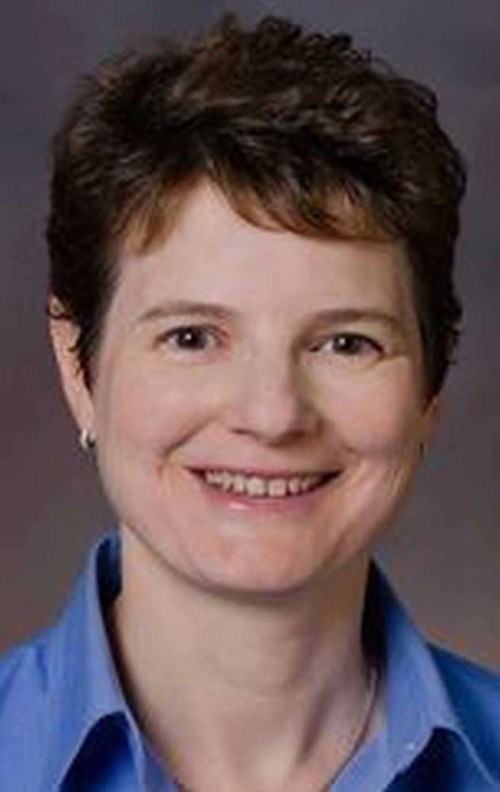Top Oregon corrections leaders offer unflattering take on governor, lawmakers as ‘dysfunctional’
Published 3:00 pm Thursday, May 26, 2022

- Hayward
SALEM — When leaders of the Oregon Department of Corrections met last fall with a $325-an-hour consultant to plan the agency’s future, they rattled off challenges they faced.
Among them: a “dysfunctional” governor’s office and Legislature.
Their take on state lawmakers was particularly blunt: “Uninformed but believe they are informed.”
The withering assessments were included in a 25-page internal document prepared by the consultant and obtained by The Oregonian/OregonLive.
It was Colette S. Peters, the longtime corrections head, who offered the unflattering assessment of Gov. Kate Brown’s office during the meeting and documented in the report, according to multiple sources with direct knowledge of the gathering. Peters answers to Brown as a department director.
The perception of lawmakers as uninformed came from several people in the room, said the sources, who were not authorized to speak publicly about the meeting.
Rep. Janelle Bynum, D-Happy Valley, who this year pressed Peters in a hearing on the department’s discipline of a prisoner, called the criticism “unfair.”
“I think most legislators would say we all want to be informed,” she said. “I think the general feeling is we can’t possibly be informed coming from our individual communities as agencies probably want us to be or think we should be. It’s a citizen legislature.”
Sen. Elizabeth Steiner Hayward, D-Beaverton, said her fellow lawmakers work hard.
“Do we know every in and out of the Department of Corrections? Probably not,” she said. “But I think people are acting in good faith.”
A spokesperson for Brown did not respond to a request for comment Wednesday, May 25.
Shifting focus
The document reflects an agency grappling with its role amid shifting societal priorities regarding crime and punishment and a national focus on racial disparities embedded in the American criminal justice system.
The meeting, facilitated by Beth Doolittle, who works as an organizational consultant, was intended to help the agency plan its long-range future. The agency released its contract with Doolittle in response to a public records request. It shows the agency agreed to pay her up to $150,000 for consulting services.
During the meeting last fall, agency leaders cited multiple demographic, practical and political factors that shape their work.
They listed the state’s aging prison population, ”far left” and “far right” political forces and a shift regarding “who’s the victim?”
“Focus has shifted to the trauma/harm” to the person who is incarcerated instead of the crime victim, the report notes.
They also cited the department’s shifting relationships with outside advocacy groups urging systemic changes within Oregon’s prisons, such as a reexamination of the use of solitary confinement.
The report doesn’t identify the groups. The Oregon Justice Resource Center has criticized the agency for a range of issues, including poor pandemic protections in the state’s prison system.
“Many advocates are no longer our friends,” the report notes.
The agency leaders also noted they faced “a call for more transparency in what we do.”
Peters, whose annual salary is $226,932, late May 25 released a statement through a Department of Corrections spokesperson, denying that she had ever characterized Brown’s office or the Legislature as dysfunctional.
The agency later followed up with an additional statement from the consultant. Doolittle, according to the agency, said she described Brown’s office as dysfunctional in the report and that she based her characterization on feedback from executive team members. She said Peters was not among those who offered the assessment.
Peters was appointed by then-Gov. John Kitzhaber and has led Oregon’s prison system for a decade, making her among the longest-serving agency directors in the state.
She oversees a nearly $2 billion system with 13 prisons and a workforce of about 4,400 people.
Tenure marked by controversy
Peters is seen as a progressive corrections leader who closed death row, allowed the installation of a first-of-its-kind Japanese garden on the grounds of the state’s only maximum-security prison and took prison staff to Norway to glean lessons from a system that prioritizes the humane treatment of incarcerated people.
Her tenure has seen controversy. The agency was criticized for its handling of large-scale prison evacuations during the 2020 wildfires and its pandemic response. Last year, a prisoner walked away from a work crew in Washington County and is accused of attacking two women on a walk in the woods. The assault on the women, both Japanese nationals, prompted a blistering response from Japan’s top diplomat in Oregon.
Bynum held a hearing earlier this year on the department’s decision to impose harsh discipline on a prisoner after an employee left a toy phone on his desk as a gag gift. The prisoner worked as a legal assistant for other prisoners.
The Oregonian/OregonLive obtained the internal document despite efforts by Corrections Department to keep it under wraps.
The department first declined to release it in response to a public records request, saying it was exempt from disclosure.
After the news organization appealed to the Oregon Department of Justice, corrections officials released the document, but many pages, including the administrators’ candid assessments of Brown’s office and the Legislature, were mostly blacked out.
The Oregonian/OregonLive filed a second appeal with the Justice Department, seeking an unredacted copy of the document.
On May 25, Deputy Attorney General Lisa Udland issued a decision that sided with the Corrections Department.
Udland concluded the agency isn’t legally required to disclose the unredacted report because it does not “meaningfully contribute to the public’s understanding” of the state’s expenditures on outside consultants.
“ … (T)o the extent the public may have some general interest in the redacted material, we find that interest is clearly outweighed in this instance by the public interest in encouraging frank communications among DOC,” she wrote.









